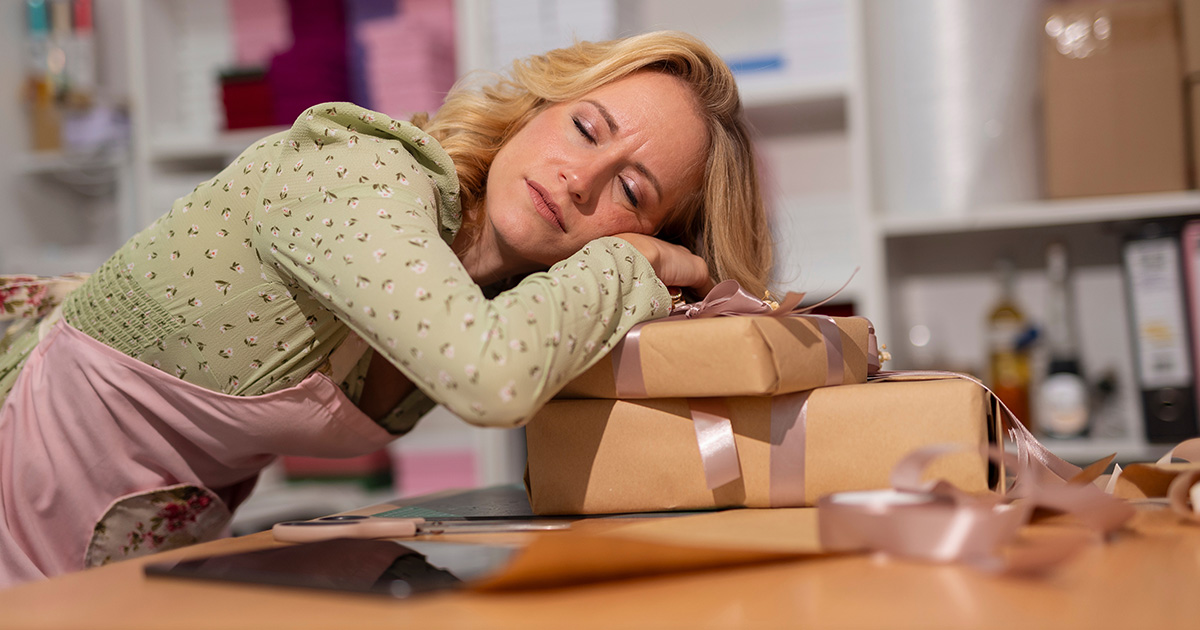The Woolcock Institute of Medical Research

Silly season sleep
As the year winds down and the weather heats up, many of us find life more crowded. Between end-of-year work deadlines, Christmas parties, family get-togethers, social catch-ups and long summer evenings, routines go out the window and regular sleep can easily slip away.
While this period is rarely ideal for maintaining perfect sleep habits, there are things you can do to work with – not against – the realities of summer life and keep your sleep on track.
WORK WITH THE HEAT
Hot summer nights can make it hard for your body to cool down enough for deep sleep but keeping your bedroom as cool and dark as possible will help. Before bed, take a quick cool shower to drop your core body temperature, use breathable sheets and make sure fans direct cooler air across your body instead of directly at it.
If you’ve been out in the evening, open windows when you get home to flush out the heat before you go to bed. And, if you’re using air conditioning, set it at 18–22 °C – a too-cold room will also cause micro-awakenings through the night.
PACE YOUR DRINKING
Not everyone drinks, but if you do, you likely drink more at this more-social time of the year. While alcohol helps you fall asleep faster, it tends to wake you after a few hours as your body metabolises the alcohol and sugar in your system, which spikes blood sugar and triggers alertness. Daytime drinking can make things worse: an early-evening “nap” after a long lunch and you can find yourself wide awake at midnight and unable to resettle.
There are a few strategies that can lessen the effects:
- Eat a balanced meal before drinking – food will slow alcohol absorption and blunt the blood-sugar rollercoaster.
- Hydrate as you go – Alcohol is dehydrating so alternate drinks with water or, at the very least, have a big glass of water before you go to bed.
- Give yourself a buffer – Try to stop drinking three to four hours before bed so your body can process the alcohol before you sleep.
- Pick lighter options – Drinks with lower alcohol and sugar tend to cause fewer overnight wake-ups than sugary cocktails or spirits.
Want to stay up to date with our research on sleep and respiratory conditions?
Sign up to our quarterly newsletter
BUILD MINI ROUTINES
During the silly season, a consistent bedtime may be unrealistic but you can maintain a “wind-down ritual” which signals to your body and brain that the day is done. This could include dimming the lights, washing your face, stretching or reading for 10-15 minutes. Doing these things every night before bed links them to sleep readiness – even if your bedtime is later than usual.
Exposure to natural light the next morning is just as important. Ten minutes of early sunlight helps reset your circadian rhythm, reduces next-day grogginess and improves your chances of better sleep the following night.
MANAGE SLEEP DEBT
One of two late nights are manageable, several in succession can led to cumulative sleep debt affecting mood, attention and immune function. To reduce the impact, you need to be strategic about recovery. A 15–20 minute afternoon nap (ideally before 3pm) before or following a big night can top-up alertness without interfering with night-time sleep. Designating at least one early or alcohol free night between social commitments also helps you reset – our bodies repay sleep debt best in chunks, not all at once.
BE REALISTIC
The festive season isn’t the time for strict discipline so, rather than fixating on perfect sleep, aim for adequate recovery. Worrying about sleep puts your body in a state of stress which maintains alertness. If you wake in the night, resist clock-watching. Focus on slow breathing, gentle stretching or a relaxing podcast. Trying to force sleep rarely works — but staying relaxed helps it return naturally once your body stabilises.
Perfect sleep isn’t the goal at this time of year – resilient sleep is. Putting in place a few thoughtful strategies will see you waking up clearer, feeling steadier and actually enjoying the season.










